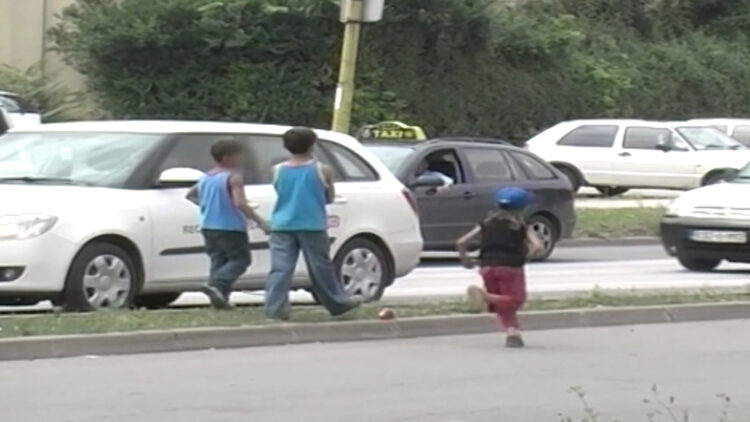
Bosnian authorities issued on Wednesday their first maximum sentence for human trafficking, sending a couple from the northern city of Tuzla behind bars for 10 years for forcing children to beg on the streets.
Almir and Seherzada Ahmetovic forced their children, aged between seven and eleven, to beg and made between 20 and 150 Bosnian Marks per child a day, prosecutors said.
They did not allow the children to buy food with the money and if the children would not bring in enough money, they would be beaten.
“They would wake the children up at about 5 in the morning, drive them to various locations in the area of Tuzla, Gradacac, Srebrenik and Orasje, where the children would be begging from morning until evening,” said Admir Arnatuovic, from the Tuzla Canton Prosecutor’s Office.
There are nearly 2,000 children being forced to beg on the streets in Bosnia and Herzegovina according to UNICEF.
Since the beginning of the year, 20 children were found begging in the streets of Tuzla and seven of them were sent to orphanages.
Labour and sexual exploitation, forced begging and contracted marriages are, according to the Criminal Code of Bosnia’s Federation (FBiH) region, acts of human trafficking.
The Tuzla Canton is the only one in Bosnia and Herzegovina that has a Protocol for dealing with cases of begging, vagrancy, labour exploitation and other forms of child abuse, which was defined and signed by government institutions and non-governmental organizations.
In five years, 257 such cases were recorded and 74 children were placed in shelters.
According to Adnan Drndic, from the Tuzla association ‘Zemlja Djece u BiH’, a huge number of children are on the streets at all times.
“There are at least 100 children constantly begging, and more than 100 children are in the same position as the four in this case that managed to save themselves with this ruling,” he said.
The ruling is a result of the Protocol that was defined and shows that all institutions must cooperate in order to tackle this problem accordingly, he said.
“We didn’t have such rulings or such court cases in Bosnia and Herzegovina before,” he said. “This was a challenge. When we saw how much children are being exploited, the monstrosity, the condition of the children which similar to slavery, then it just motivated us more to stop this practice.”
According to sociologist Srdjan Vukadinovic, selling children “is something that became frequent in recent years.”
“It is tied to a certain ethnic population and it is a kind of lifestyle and cultural model of behaviour, but it needs to be fought against. This cultural model of behaviour is not something that belongs in a modern society,” he said.
According to the European Commission’s Bosnia and Herzegovina 2020 Report, “the exploitation of children and child begging are issues of concern” in the country.
“Only a small number of cases of violence against children are reported,” the report said.




